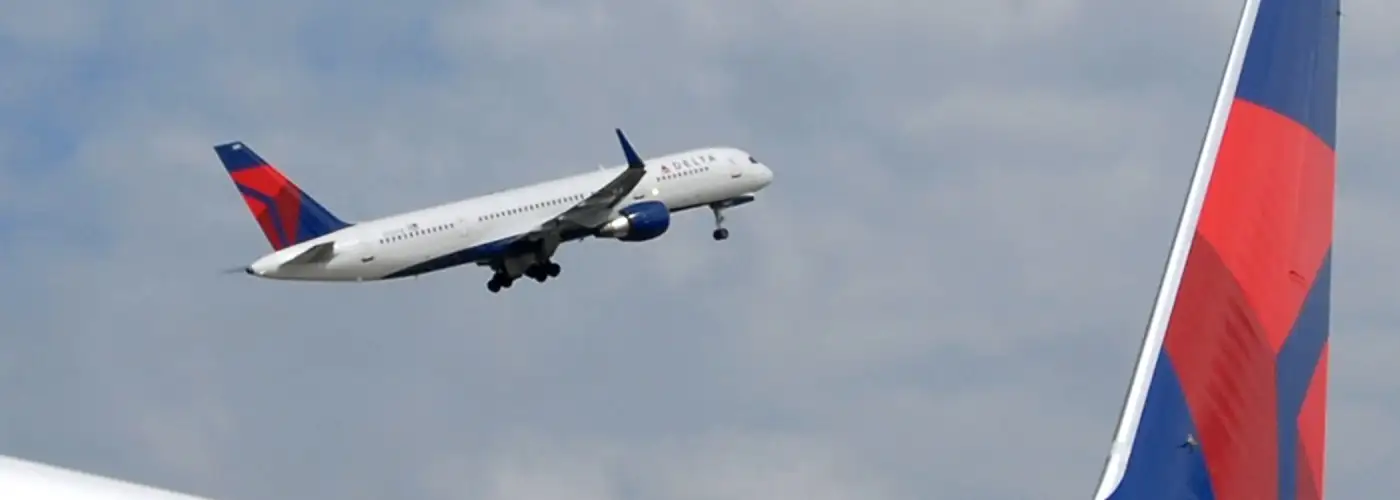On June 18, 28 airline passengers filed a lawsuit challenging the proposed mega-merger between Delta and Northwest, claiming it violates U.S. antitrust laws, which prohibit business arrangements that reduce competition.
According to the suit, a merged Delta and Northwest would control 24 percent of the domestic market, a huge chunk of business for one company, large enough to be labeled a monopoly. The merger would also increase the combined market share of the remaining largest four airlines to about 60 or 70 percent, meaning nearly all domestic air travel in the country would be operated by five airlines.
“The potential for increased price-fixing, division of markets and other anticompetitive acts among the remaining airlines is significant,” the lawsuit claims, and indeed, the post-merger air travel landscape sure looks vulnerable to these kinds of shady practices. These would be serious crimes, so serious that it seems unlikely any airline would have the guts to attempt any one of them, but the potential is there nonetheless.
The airlines, as you’d expect, have a sunnier outlook on the deal. Delta spokeswoman Betsy Talton said the merger “is the most compelling way to build a strong, long-term airline.” Northwest spokeswoman Tammy Lee explained that the merger is “pro-competitive and pro-consumer, because our networks have little overlap,” and called the lawsuit frivolous. A lack of overlap has been touted as one of the merger’s benefits all along. The airlines have even used it to distinguish this merger from the recent (and rocky) tie-up between US Airways and America West, where there was a fair amount of overlap.
That may be true, but a single airline controlling a massive nationwide route network is cause for concern. Minnesota Congressman James Oberstar, chairman of the House Transportation Committee, has already called upon the Justice Department to kill the deal. (Of course, Northwest has a huge presence in Oberstar’s home state, and he may be simply trying to save many of his constituents’ jobs.) In 2001, a proposed merger between United and US Airways sank over fears that the merged carrier would control too much of the Washington market.
The real story here, though, is that 28 passengers have banded together to fight what they consider a dubious business deal. It’s a sign of an increasingly involved and frustrated consumer base, which will be crucial as the airlines continue to struggle with oil prices and a weak economy. In this case, the allegations have merit, and it is critical to protect both consumers and the industry from a noncompetitive practices. The air travel business is fragile enough as it is.
We hand-pick everything we recommend and select items through testing and reviews. Some products are sent to us free of charge with no incentive to offer a favorable review. We offer our unbiased opinions and do not accept compensation to review products. All items are in stock and prices are accurate at the time of publication. If you buy something through our links, we may earn a commission.
Related
Top Fares From
Today's Top Travel Deals
Brought to you by ShermansTravel
Kenya: 14-Night Tour, Incl. Tanzania &...
smarTours
 vacation
$7125+
vacation
$7125+
7-Night Caribbean Round-Trip Cruise From Orlando:...
Norwegian Cruise Line
 cruise
$739+
cruise
$739+
Ohio: Daily Car Rentals from Cincinnati
85OFF.com
 Car Rental
$19+
Car Rental
$19+




